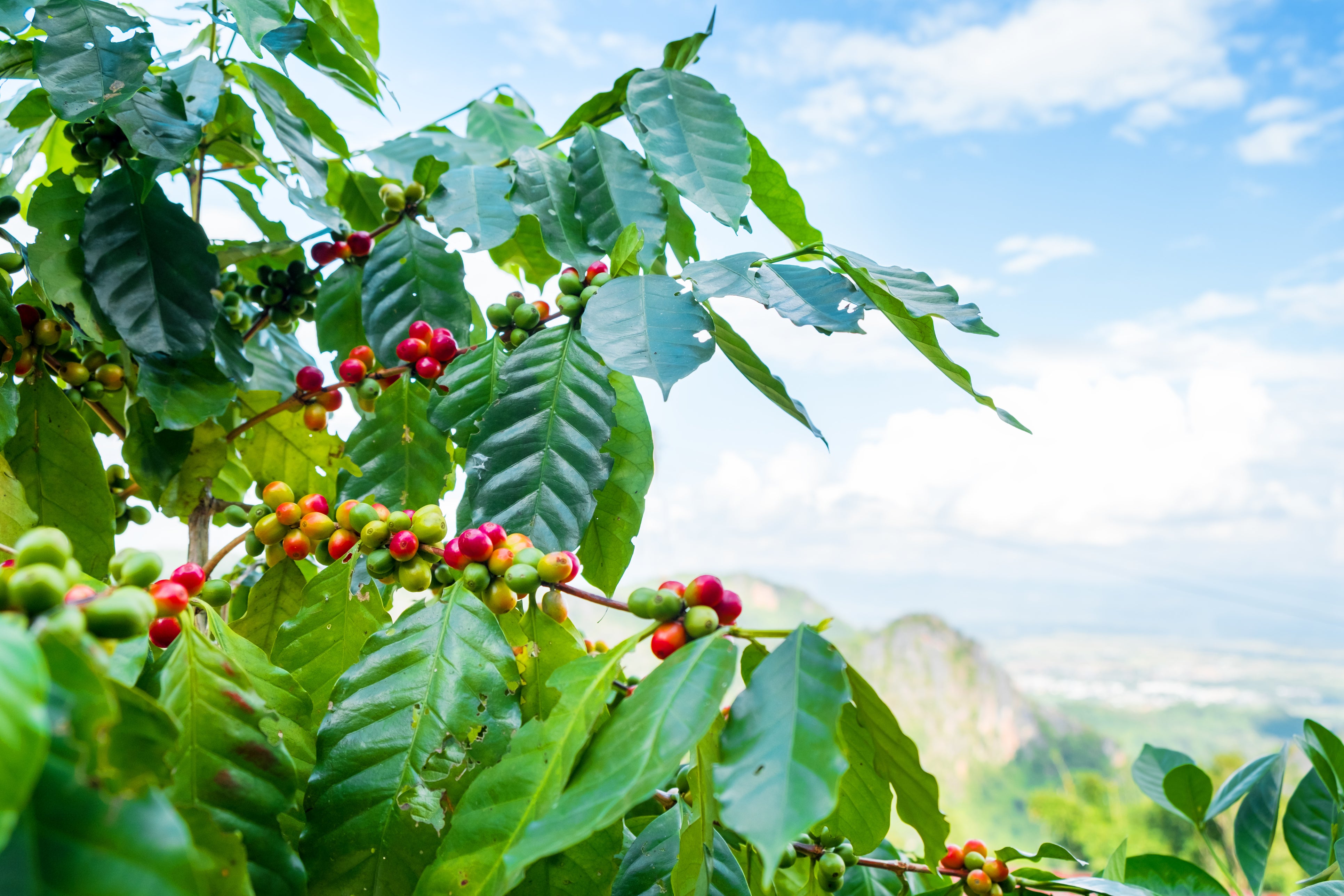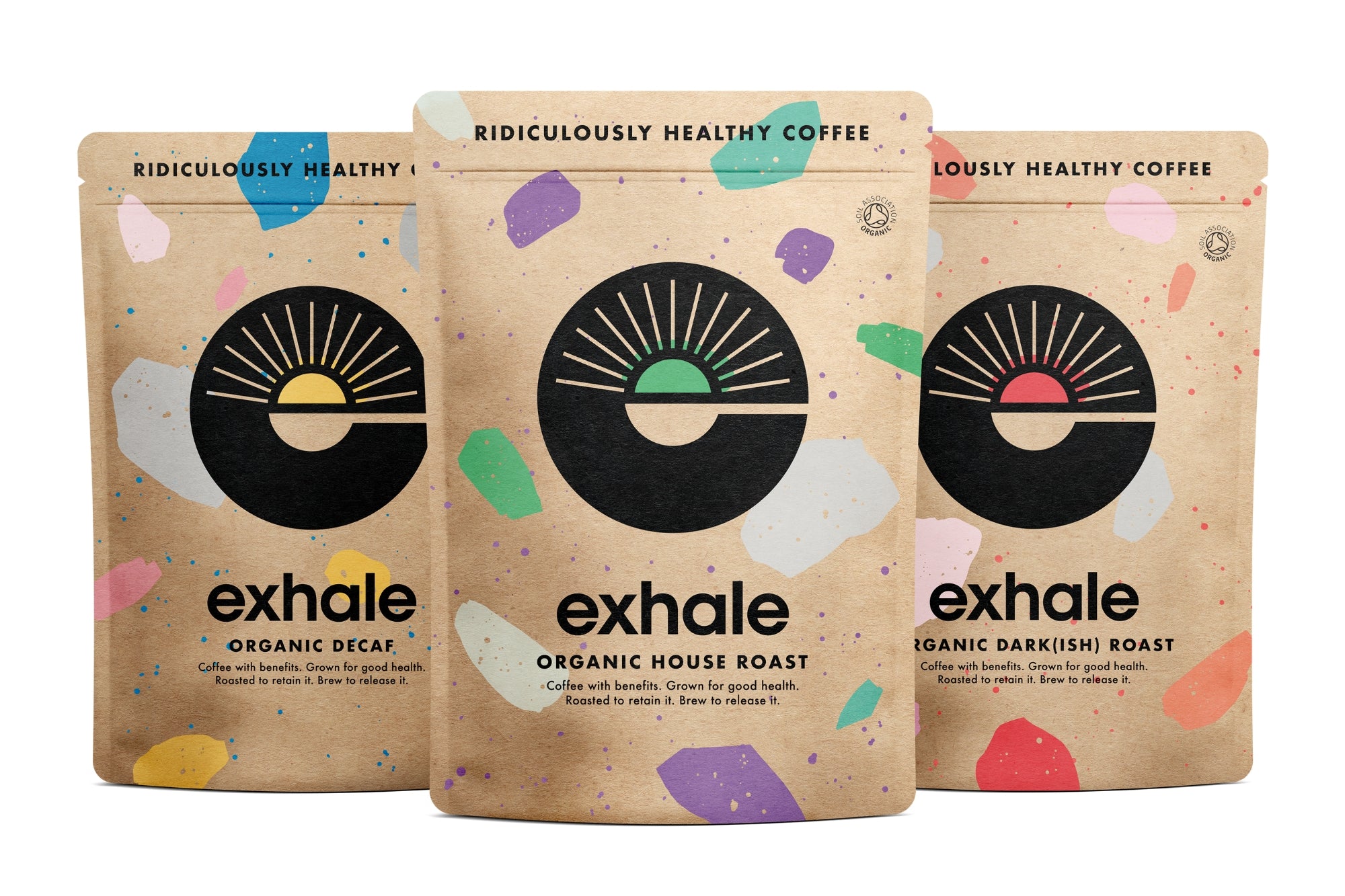Coffee is synonymous with sports with as many as 90% of athletes drinking it regularly. Some of us drink it for a pre-run energy boost, while others stick to drinking it after an event. I recently spoke to Women’s Running Magazine to explain the science and give some practical advice on how to use coffee to improve your performance… and hopefully smash a new PB!

THE SCIENCE:
The performance enhancing effects of caffeine
Studies have proven caffeine to be one of the few legal ergogenic aids to sports performance (1-5). Meaning it can ‘enhance energy production, use or recovery and provide athletes with a competitive advantage’. All pretty vital when looking to set a new PB. So much energy, that recent meta-analyses have shown you can get as much as an impressive 11-12% performance boost from caffeine (6)!
But why? Studies have shown that caffeine could stimulate the central nervous system, as well as increase the secretion of everyone’s favourite “feel-good” chemical, endorphins, resulting in decreased sensitivity to pain and a lower perception of exertion during exercise. Meaning you can keep going for longer before you feel tired. It could also potentially produce more sustainable and forceful muscle contractions.
The science is pretty clear that caffeine gives a performance boost. And so is WADA, the World Anti-Doping Agency, causing them to ban caffeine use amongst athletes in 2003 because it provides an unfair advantage! Fortunately for us they eventually had to reverse the ban when they realised it was impractical to enforce - and it mostly just p’ed athletes off for stopping them drink their favourite cup of Joe!
The moral of the story: Enjoy your coffee as one of the few, legally allowed, performance enhancing drugs while you can!

The performance enhancing effects of polyphenols
But coffee contains more than just caffeine and has over 1,000 different compounds. So what about the rest?
The good news for Exhale Coffee drinkers (and for decaf drinkers) is that the polyphenols found in coffee have also been shown to improve performance too. And as Dr Rupy, NHS Medical Doctor and Exhale Advisor says “Coffee’s got an incredible array of polyphenols.”
But what are polyphenols? They’re plant-based phytochemicals present in a lot of fruits and veggies but your largest dietary source is... you guessed it, coffee, contributing up to 66% of your total dietary intake according to some studies (7-13)!
Over and above caffeine, research shows the polyphenols found in coffee improve both sprint and endurance performance (14).
Not all coffee is created equal, and the quantity and level of activity of polyphenols vary immensely from coffee to coffee. Studies show up to an incredible 31-fold difference from cup to cup (10). At Exhale we're proud to be the only company globally who source and roast our coffee to maximise the number of polyphenols then test their activity.
With Exhale Coffee you’re getting a double performance boost, from both the caffeine and the high levels of polyphenols, hence why it’s been nicknamed the ‘PB Juice’ by our happy customers!

PRACTICAL ADVICE:
How to use coffee and caffeine to improve performance – The dose
But before you sprint off to go and down your bodyweight in coffee... The International Society of Sports Nutrition (ISSN) recommend 3-6mg of caffeine per kg of bodyweight, 30-90 minutes prior to exercise to ‘improve endurance exercise capacity’. For the average* 70kg female, that would be 210mg to 420mg, which equates to roughly 3 to 6 espressos or 2 small cafetieres. So, a lot of coffee!
There’s real variability in regard to how we respond to coffee, or caffeine, so I highly recommend experimenting within this range. There are so many variables at play it’s important to tailor your intake to your own perceived tolerance of caffeine. And never try out such a high quantity for the first time on the day of an event - that can be a disaster as some of the team at Exhale have learned the hard way! Always experiment in training first.

When to drink coffee (and use caffeine) to get the biggest boost in performance
On race day I drink a double espresso, or one small cafetiere of coffee, around an hour before the race (because it’s slower to get metabolised and take effect) providing about 150mg of caffeine.
Then closer to the race, around 10 mins before, I take a couple of caffeine pills (which are absorbed by the body much faster) adding an additional 150mg of caffeine. Pushing me up to 300mg in total.
This is around 3.75x my bodyweight, which I have worked out is my personal optimum level through (a lot of!) trial and error in training.
Another benefit of Exhale Coffee is the high levels of polyphenols negate some of the negative effects of caffeine (16).
Anecdotally we’re seeing a lot of evidence to support that you get a more sustained energy until later in the race, without the crash.
I find this amount of caffeine is plenty until later in an event when maybe an hour before the end I’ll top up my caffeine levels with 50-75mg in an energy gel. I can’t recommend those by our partners Veloforte highly enough as they’re all natural and made solely from recognisable ingredients you’d find in your kitchen cupboard, just smushed into one convenient sachet! Check them out here.
In conclusion
So, is Exhale coffee the new PB juice? Anecdotally, yes, and we're seeing a lot of people set PBs with our coffee. Aside from knocking 7 minutes off my own half marathon PB last year, Danny Easton, host of the Big Run podcast says, “I've had both Exhale Regular and Decaf coffees prior to a race and both have resulted in improved performance and importantly, PBs!”.
Try Exhale's PB Juice for yourself and shop Exhale Coffee here

Citations
- Southward K, Rutherfurd-Markwick KJ, Ali A. The Effect of Acute Caffeine Ingestion on Endurance Performance: A Systematic Review and Meta-Analysis. Sports Med. 2018 Aug;48(8):1913-1928. doi: 10.1007/s40279-018-0939-8. Erratum in: Sports Med. 2018 Aug 9;: PMID: 29876876.
- Grgic J, Trexler ET, Lazinica B, Pedisic Z. Effects of caffeine intake on muscle strength and power: a systematic review and meta-analysis. J Int Soc Sports Nutr. 2018 Mar 5;15:11. doi: 10.1186/s12970-018-0216-0. PMID: 29527137; PMCID: PMC5839013.
- Pickering C, Grgic J. Caffeine and Exercise: What Next? Sports Med. 2019 Jul;49(7):1007-1030. doi: 10.1007/s40279-019-01101-0. PMID: 30977054; PMCID: PMC6548757.
- Porrini M, Del Boʼ C. Ergogenic Aids and Supplements. Front Horm Res. 2016;47:128-52. doi: 10.1159/000445176. Epub 2016 Jun 27. PMID: 27348226.
- Davis JK, Green JM. Caffeine and anaerobic performance: ergogenic value and mechanisms of action. Sports Med. 2009;39(10):813-32. doi: 10.2165/11317770-000000000-00000. PMID: 19757860.
- Doherty M, Smith PM. Effects of caffeine ingestion on rating of perceived exertion during and after exercise: a meta-analysis. Scand J Med Sci Sports. 2005 Apr;15(2):69-78. doi: 10.1111/j.1600-0838.2005.00445.x. PMID: 15773860.
- Svilaas A, Sakhi AK, Andersen LF, Svilaas T, Ström EC, Jacobs DR Jr, Ose L, Blomhoff R. Intakes of antioxidants in coffee, wine, and vegetables are correlated with plasma carotenoids in humans. J Nutr. 2004 Mar;134(3):562-7. doi: 10.1093/jn/134.3.562. PMID: 14988447.
- Pulido R, Hernández-García M, Saura-Calixto F. Contribution of beverages to the intake of lipophilic and hydrophilic antioxidants in the Spanish diet. Eur J Clin Nutr. 2003 Oct;57(10):1275-82. doi: 10.1038/sj.ejcn.1601685. PMID: 14506489.
- Ovaskainen ML, Törrönen R, Koponen JM, Sinkko H, Hellström J, Reinivuo H, Mattila P. Dietary intake and major food sources of polyphenols in Finnish adults. J Nutr. 2008 Mar;138(3):562-6. doi: 10.1093/jn/138.3.562. PMID: 18287367.
- Fukushima Y, Tashiro T, Kumagai A, Ohyanagi H, Horiuchi T, Takizawa K, Sugihara N, Kishimoto Y, Taguchi C, Tani M, Kondo K. Coffee and beverages are the major contributors to polyphenol consumption from food and beverages in Japanese middle-aged women. J Nutr Sci. 2014 Oct 22;3:e48. doi: 10.1017/jns.2014.19. PMID: 26101616; PMCID: PMC4473170.
- Rothwell JA, Urpi-Sarda M, Boto-Ordoñez M, Knox C, Llorach R, Eisner R, Cruz J, Neveu V, Wishart D, Manach C, Andres-Lacueva C, Scalbert A. Phenol-Explorer 2.0: a major update of the Phenol-Explorer database integrating data on polyphenol metabolism and pharmacokinetics in humans and experimental animals. Database (Oxford). 2012 Aug 9;2012:bas031. doi: 10.1093/database/bas031. PMID: 22879444; PMCID: PMC3414821.
- Pérez-Jiménez J, Fezeu L, Touvier M, Arnault N, Manach C, Hercberg S, Galan P, Scalbert A. Dietary intake of 337 polyphenols in French adults. Am J Clin Nutr. 2011 Jun;93(6):1220-8. doi: 10.3945/ajcn.110.007096. Epub 2011 Apr 13. PMID: 21490142.
- Zujko ME, Witkowska AM, Waśkiewicz A, Sygnowska E. Estimation of dietary intake and patterns of polyphenol consumption in Polish adult population. Adv Med Sci. 2012;57(2):375-84. doi: 10.2478/v10039-012-0026-6. PMID: 22968335.
- Bowtell J, Kelly V. Fruit-Derived Polyphenol Supplementation for Athlete Recovery and Performance. Sports Med. 2019 Feb;49(Suppl 1):3-23. doi: 10.1007/s40279-018-0998-x. PMID: 30671906; PMCID: PMC6445811.
- Ludwig IA, Mena P, Calani L, Cid C, Del Rio D, Lean ME, Crozier A. Variations in caffeine and chlorogenic acid contents of coffees: what are we drinking? Food Funct. 2014 Aug;5(8):1718-26. doi: 10.1039/c4fo00290c. PMID: 25014672.
- Dias GP, Cavegn N, Nix A, do Nascimento Bevilaqua MC, Stangl D, Zainuddin MS, Nardi AE, Gardino PF, Thuret S. The role of dietary polyphenols on adult hippocampal neurogenesis: molecular mechanisms and behavioural effects on depression and anxiety. Oxid Med Cell Longev. 2012;2012:541971. doi: 10.1155/2012/541971. Epub 2012 Jun 28. PMID: 22829957; PMCID: PMC3395274.






1 comment
Monique Poolman
As an athlete myself as well as my husband we will definitely like try out the new coffee Exhale you mentioned above
Thanking you I’n advance
Monique Poolman
Leave a comment
All comments are moderated before being published.
This site is protected by hCaptcha and the hCaptcha Privacy Policy and Terms of Service apply.